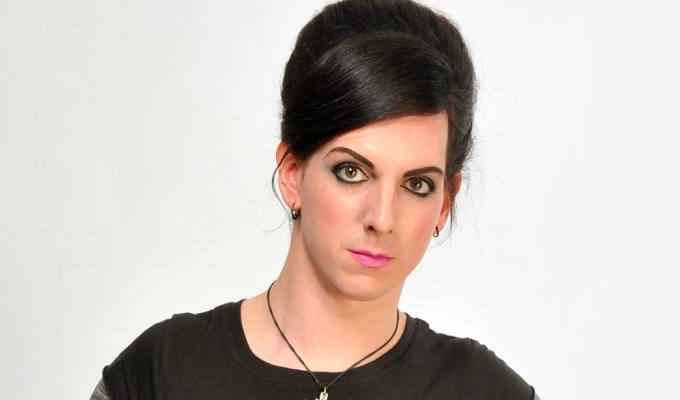JoJo Sutherland Stands Up For Herself – Fringe 2009
Note: This review is from 2009
Review by Jay Richardson
Raised in a castle but now absconding from bailiffs, JoJo Sutherland has experienced the full spectrum of wealth – from shabby aristocracy living beyond its means to the sharp end of raising four children while coping with debt. With a higher profile, she’d make an excellent episode of Who Do You Think You Are?
She starts a nervously, with a tendency to talk over her laughs and filling time by bantering with the audience. The more intimate, confessional mood she fosters here is probably necessary, though, to introduce the opening chapter of her complicated family tree, as she reveals how she married her ex-husband’s brother. Cue a couple of throwaway incest jokes
Her tone fluctuates unsettlingly between the straightforwardly personal and the flippantly detached. Although it sets a context for the personal drama to come, her allusion to the fate of the man she had sex with at her divorce party is unnecessarily unfeeling and deservedly falls flat.
She’s on surer ground discussing her kids, and though the gags remain hit and miss, she offers the very funny picture of a mother creating a succession of social networking identities to track her children’s relationships. That’s significantly more attention than her father ever lavished upon her, though, and it’s her portrait of Major Douglas Sutherland that’s the chief delight of this show.
One of those remarkable characters that occasionally appear in the Daily Telegraph obituaries column, this decorated officer drank with Dylan Thomas, attended the Nuremberg Trials and spent other people’s money with a ferociously bluff sense of aristocratic entitlement. Jilly Cooper and Dave Allen were guests at the castle, the latter treating the young JoJo to a tall version of the story of how he lost his finger. Robert Helpmann, the child catcher from Chitty Chitty Bang Bang, also played a hilariously incongruous part in their lives.
Perceptive on the ways in which class dictates society’s view of parents, Sutherland relates everything with a wry, fatalistic tone, unsurprising given the near death experience she suffered that forced her to reassess her priorities.
This closing segment forgivably aspires to pathos more frequently than laughs and only semi-successfully draws all the threads of her story together. But it has undeniable impact and she forestalls any lingering sentimentality with a final, filthy routine correcting her ten-year-old daughter’s sex education and perhaps providing an example for her spendthrift parents on a way to balance the books.
The jokes may be of variable quality, but as an anecdotalist Sutherland is really flourishing.
Review date: 27 Aug 2009
Reviewed by: Jay Richardson








